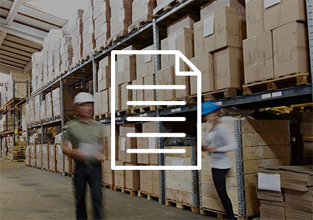Land O’Lakes
The Need for Global Agility and Scale
Founded in 1921, Land O’Lakes is continuing its history of innovation with strategic objectives to enter new global markets. The $15 billion food and agriculture cooperative needed an agile, scalable platform for new ventures.
COMPANY
Land O’Lakes, inc.
SIZE
Enterprise
REVENUE
$15 Billion
EMPLOYEES
9,000 worldwide
INDUSTRY
Food and Agriculture
SYSTEM REPLACED
New rollout for international operations
“NetSuite OneWorld absolutely gives us the ability to be flexible and innovate. NetSuite has been critical in helping us to enter new markets quickly, efficiently and effectively.”

Global Agility and Scale
GLOBAL SPEED TO MARKET
Land O’Lakes rapidly scaled up two subsidiaries in Mexico for its WinField crop input business while running three Nutra Blend animal feed subsidiaries in the U.S. with the NetSuite OneWorld global business management platform. Aligning NetSuite in a two-tier ERP, Land O’Lakes was up and running at a fraction of the time and cost of an on-premise ERP alternative.

REAL-TIME VISIBILITY AND COST
SAVINGS
Land O’Lakes has real-time visibility, faster global consolidation across its subsidiaries and automated transactions and reporting in the Mexican peso, with capacity to add more currencies as needed. The cooperative is saving $90,000 in improved credit memo handling, $40,000 through better identification of duplicates and $25,000 through automated payments, compared to paper checks.

STRATEGIC BUSINESS
TRANSFORMATION
Land O’Lakes is now equipped to pursue strategic global growth objectives across Latin America, Europe, Asia and Africa, both organically and through mergers and acquisitions. NetSuite OneWorld plays a central role in Land O’Lakes’ ongoing multi-year transformation to improve growth, business agility and competitive advantage.


































